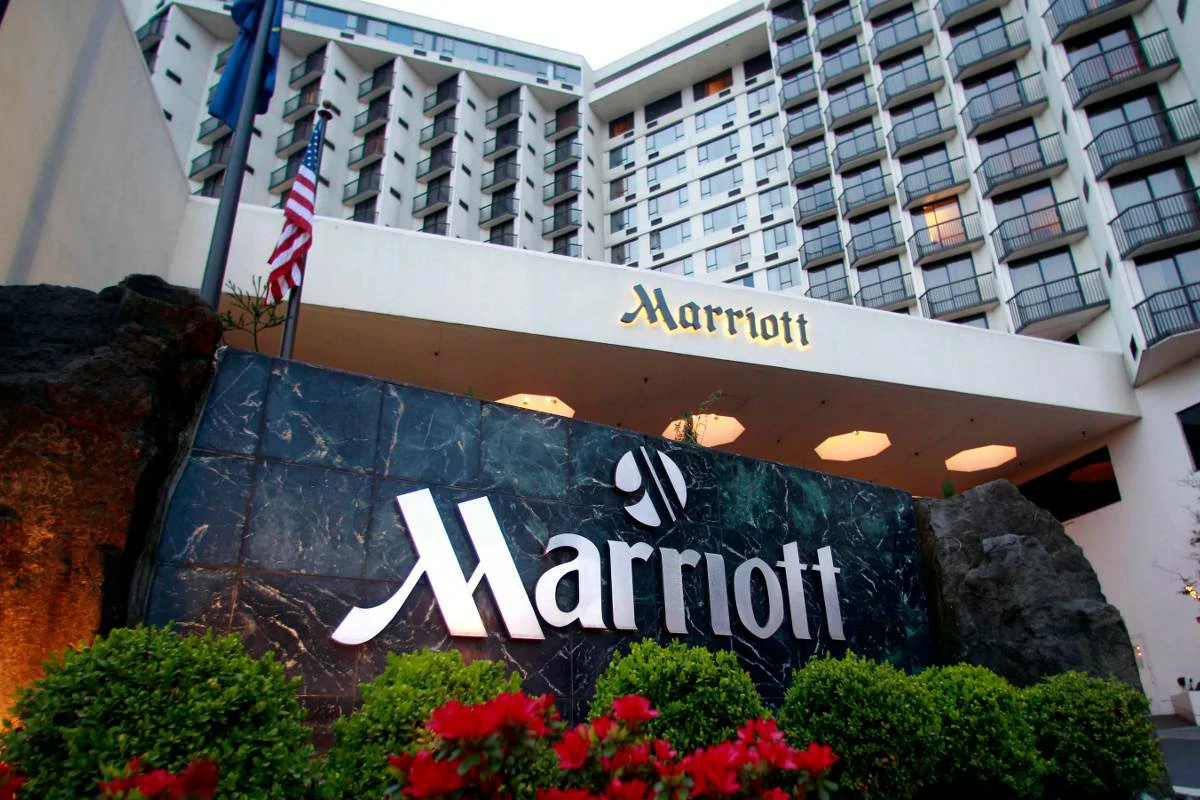What is a resort fee and How to Avoid Hotel Resort Fees (and Which Brands Are the Worst)? Answer is –A resort fee is a mandatory extra charge added to your hotel bill, often not fully disclosed until checkout. It supposedly covers amenities like Wi-Fi, gym access, or pool towels, but you pay it regardless of whether you use them. This practice is widespread, particularly in popular tourist destinations like Las Vegas and Hawaii. While avoiding resort fees can be tricky, some strategies include booking award stays with points, using certain credit card benefits, or choosing hotel brands that waive them for loyalty program members. The brands notorious for high resort fees include MGM Resorts, Caesars Entertainment, and Hyatt.
Summary
- Resort fees are a controversial practice where hotels add extra charges for amenities, often not transparently disclosed until checkout.
- These fees are mandatory and guests pay them regardless of whether they use the included amenities.
- Hotels justify resort fees by claiming they cover the costs of amenities and allow for lower room rates.
- Critics argue that resort fees are deceptive and artificially inflate the final cost of a hotel stay.
- Several methods exist to avoid resort fees, such as booking award stays, using certain credit cards, or choosing hotels that waive them for loyalty members.
- Some hotel brands are known for particularly high resort fees, including MGM Resorts, Caesars Entertainment, and Hyatt.
What is a resort fee and How to Avoid Hotel Resort Fees?

What is a Resort Fee?
A resort fee is an additional mandatory charge added to your hotel bill, typically not included in the initial advertised room rate.
It is often justified as covering the cost of amenities like Wi-Fi, pool access, gym use, newspapers, or airport shuttles.
However, these fees are charged regardless of whether you use these amenities or not.
Why Are Resort Fees So Controversial?
Resort fees have sparked widespread controversy and frustration among travelers for several reasons:
Lack of Transparency: Resort fees are often not clearly disclosed upfront when booking a hotel, leading to an unpleasant surprise at checkout. Many travelers feel deceived when they discover the final price of their stay is significantly higher than expected.
Mandatory Nature: Unlike optional add-ons, resort fees are mandatory charges, meaning you have no choice but to pay them even if you don’t utilize the included amenities. This has led to accusations of price gouging and unfair practices.
Inconsistent Pricing: The cost of resort fees can vary widely between hotels, even within the same brand or location. This makes it difficult for travelers to compare prices and make informed decisions.
Limited Regulation: Despite numerous complaints, there is limited regulation regarding resort fees in many jurisdictions. This leaves consumers with little recourse if they feel they have been unfairly charged.
The Impact of Resort Fees on Travelers
Resort fees can have a significant impact on travelers:
Financial Burden: The additional cost of resort fees can significantly increase the overall cost of a hotel stay, especially for budget-conscious travelers. This can make vacations less affordable and limit travel options.
Difficulty in Budgeting: The lack of transparency surrounding resort fees makes it challenging for travelers to accurately budget for their trips. This can lead to unexpected expenses and financial strain.
Negative Perception of the Industry: The widespread use of resort fees has contributed to a negative perception of the hotel industry among consumers. Many travelers feel taken advantage of and are less likely to trust hotels in the future.
Lauren Wolfe Expert Opinion
Lauren Wolfe, a travel expert and founder of the travel blog “The Wanderlust Way,” states, “Resort fees are a deceptive practice that preys on unsuspecting travelers. They create a false sense of value and undermine the trust between hotels and their guests. It’s time for the industry to embrace transparency and offer fair and honest pricing.”
The Rise of Resort Fees

1. History of Resort Fees
Resort fees emerged in the late 1990s as a way for hotels, primarily in resort destinations, to bundle amenities and services into a single charge. Initially, these fees were relatively modest and often optional, allowing guests to choose whether they wanted to pay for access to certain amenities.
However, over time, resort fees became increasingly common and mandatory, spreading beyond resort destinations to urban hotels and even budget accommodations.
According to the Federal Trade Commission (FTC), the first known resort fees appeared as early as 1997. In 2012, the FTC sent warning letters to 22 hotels for not adequately disclosing resort fees on their websites, indicating that the practice was already raising concerns among consumers and regulators.
2. Why Do Hotels Charge Resort Fees?
There are several reasons why hotels have embraced resort fees:
Revenue Generation: Resort fees provide hotels with an additional source of revenue, allowing them to increase their profits without raising room rates. This is particularly appealing in a competitive market where hotels strive to offer attractive base rates to attract customers.
Cost Recovery: Hotels argue that resort fees help them cover the costs of providing amenities and services, such as Wi-Fi, pool maintenance, and fitness centers. They claim that by charging a separate fee, they can keep room rates lower for guests who don’t use these amenities.
Price Obfuscation: Resort fees allow hotels to advertise lower room rates, which can appear more attractive to potential guests. The actual cost of the stay, including the resort fee, is often not revealed until later in the booking process or even at checkout, making it difficult for consumers to compare prices accurately.
Competitive Pressure: As more hotels adopt resort fees, others feel compelled to follow suit to remain competitive. This creates a cycle where resort fees become the norm, making it difficult for hotels to opt out of the practice without risking a loss of customers.
3. The Psychology Behind Resort Fees
The psychology behind resort fees is rooted in several cognitive biases:
Drip Pricing: Resort fees are an example of drip pricing, where the final price of a product or service is gradually revealed through a series of add-on fees. This can make the initial price seem more attractive, leading consumers to underestimate the total cost.
Loss Aversion: People tend to feel the pain of a loss more strongly than the pleasure of a gain. By presenting the room rate and resort fee separately, hotels can tap into consumers’ aversion to loss, making the resort fee seem less significant compared to the potential loss of a good deal on the room.
Sunk Cost Fallacy: Once consumers have invested time and effort into researching and booking a hotel, they are more likely to accept additional fees to avoid losing their investment. This makes them more susceptible to accepting resort fees, even if they feel the fees are unfair.
Dr. Utpal Dholakia Expert Opinion
Dr. Utpal Dholakia, a marketing professor at Rice University and an expert on consumer behavior, explains, “Resort fees exploit several psychological biases to make them more palatable to consumers. By gradually revealing the true cost and framing the fees as separate from the room rate, hotels can nudge consumers towards accepting them, even if they feel the fees are unjustified.”
The Problem with Resort Fees

1. Lack of Transparency and Disclosure
One of the most significant issues with resort fees is the lack of transparency in their disclosure. Often, these fees are not clearly presented during the initial booking process, leading to sticker shock for travelers when they receive their final bill.
Many hotel websites and booking platforms list the room rate without including the resort fee, making it seem more affordable than it actually is. The resort fee is often hidden in the fine print or disclosed only during the final stages of booking, leaving consumers feeling misled and deceived.
This lack of transparency has drawn criticism from consumer advocacy groups and regulators. The Federal Trade Commission (FTC) has taken action against several hotels for deceptive advertising practices related to resort fees, highlighting the need for greater transparency in hotel pricing.
2. Mandatory Nature of the Fees
Another major concern with resort fees is their mandatory nature. Unlike optional add-ons, guests are required to pay resort fees regardless of whether they use the amenities covered by the fee.
This can be particularly frustrating for travelers who may not have any interest in using the pool, gym, or other amenities included in the fee.
The mandatory nature of resort fees raises questions about their fairness and value. Consumers argue that they should have the choice to opt out of paying for services they don’t intend to use, especially when those services are often basic amenities that should be included in the room rate.
3. The Impact on Consumer Trust
The lack of transparency and mandatory nature of resort fees have significantly eroded consumer trust in the hotel industry. Many travelers feel taken advantage of and view resort fees as a deceptive practice that artificially inflates the cost of their stay.
This loss of trust can have long-term consequences for hotels. When consumers feel misled or unfairly charged, they are less likely to return to the same hotel or recommend it to others. This can negatively impact a hotel’s reputation and customer loyalty.
Charles Leocha Expert Opinion
Charles Leocha, President and Co-founder of Travelers United, a consumer advocacy organization, emphasizes the importance of transparent pricing in the hotel industry. He states, “Resort fees are a hidden tax on travelers. They make it impossible for consumers to comparison shop and erode trust in the hotel industry. It’s time for hotels to be upfront about their pricing and stop hiding fees in the fine print.”
How Resort Fees Affect Travelers

1. Increased Costs for Travelers
The most immediate and obvious impact of resort fees is the increased cost for travelers. These fees, which can range from $20 to $100+ per night, significantly add to the overall price of a hotel stay.
According to a study by the American Hotel & Lodging Association (AHLA), the average resort fee in the United States was $33.17 in 2022. This means that a week-long vacation could easily see an extra $200 tacked onto the bill, making travel less affordable for many.
Not only do resort fees increase the upfront cost of a hotel stay, but they also have a ripple effect on other travel expenses. For example, when booking a trip, travelers often set a budget based on the advertised room rates.
However, the added resort fee can throw off their budget, leaving them with less money for other activities, meals, or souvenirs.
2. Difficulty Comparing Hotel Prices
Resort fees make it challenging for travelers to compare hotel prices accurately. When hotels advertise their room rates without including the resort fee, it creates a false sense of affordability.
Consumers may be drawn to a hotel with a lower advertised rate, only to discover later that the actual cost is much higher due to the resort fee.
This lack of transparency makes it difficult for travelers to make informed decisions about where to stay. It can also lead to frustration and disappointment when the final bill is much higher than expected.
3. Frustration and Dissatisfaction
The lack of transparency and mandatory nature of resort fees contribute to widespread frustration and dissatisfaction among travelers. Many feel deceived and taken advantage of when they realize they have to pay an additional fee for services they may not even use.
This frustration can taint the entire travel experience. Instead of feeling relaxed and excited about their vacation, travelers may feel stressed and resentful about the extra cost. This can lead to negative reviews and a reluctance to return to the same hotel or brand in the future.
Henry Harteveldt Expert Opinion
Henry Harteveldt, a travel industry analyst and president of Atmosphere Research Group, highlights the negative impact of resort fees on traveler sentiment. He states, “Resort fees are a major source of frustration for travelers. They feel like a bait-and-switch tactic, and it erodes their trust in the hotel industry. Hotels need to be more transparent about their pricing if they want to build long-term relationships with their guests.”
How to Avoid Resort Fees

While resort fees can be frustrating, several strategies can help you avoid or minimize their impact on your travel budget. Here’s a breakdown of some effective methods:
1. Booking Award Stays with Points
One of the most reliable ways to avoid resort fees is by booking your hotel stay using reward points from a hotel loyalty program.
Many hotel chains, such as Hilton Honors, Marriott Bonvoy, and World of Hyatt, waive resort fees for award stays booked entirely with points. This can be a significant saving, especially for longer stays or hotels with high resort fees.
It’s important to note that this benefit usually applies only to award stays booked directly through the hotel’s loyalty program and may not be available for stays booked through third-party websites.
Before booking, check the terms and conditions of the loyalty program to confirm if resort fees are waived for award stays.
2. Utilizing Credit Card Benefits
Some premium travel credit cards offer benefits that can help you offset the cost of resort fees. For example, the Chase Sapphire Reserve and The Platinum Card® from American Express offer annual travel credits that can be used to reimburse resort fees charged to your card.
Additionally, certain hotel co-branded credit cards may offer elite status benefits, which can include waived resort fees. Check the terms and benefits of your credit card to see if it offers any perks that can help you avoid resort fees.
3. Choosing Hotels That Waive Resort Fees
While many hotels charge resort fees, there are still some that don’t. Consider researching and choosing hotels that have a transparent pricing policy and don’t impose resort fees.
Websites like ResortFeeChecker.com can help you identify hotels that don’t charge resort fees in your desired destination.
Some hotel chains, such as Hyatt, offer waived resort fees for members of their loyalty program who have achieved a certain status level.
If you are a frequent traveler, consider joining a hotel loyalty program and working towards elite status to enjoy this benefit.
4. Negotiating with the Hotel
In some cases, it may be possible to negotiate with the hotel to have the resort fee waived or reduced. This is more likely to be successful if you are a loyal customer, booking a long stay, or have elite status with the hotel’s loyalty program.
You can try contacting the hotel directly before your stay and inquire about the possibility of waiving the resort fee. Be polite and explain your reasons for requesting the waiver.
It’s also worth checking online forums and travel communities for tips and experiences from other travelers who have successfully negotiated resort fees.
Gary Leff Expert Opinion
Gary Leff, founder of the popular travel blog View from the Wing, advises, “Don’t be afraid to negotiate with the hotel. It never hurts to ask, and you might be surprised at how often they are willing to waive or reduce resort fees, especially if you are a loyal customer or have elite status.”
Hotel Brands with the Highest Resort Fees

Navigating the world of resort fees can feel like a minefield. It’s crucial to be aware of which hotel brands are notorious for high resort fees, so you can make informed decisions and avoid unexpected costs.
Here’s a breakdown of some of the worst offenders, based on a 2024 analysis by NerdWallet:
Resort Fees as % of Total Room Cost, by Brand
| Hotel Brand | Resort Fees (% of Room Rate) | Average Resort Fee (USD) | Example Properties |
|---|---|---|---|
| Wyndham | 6.4% | $45 | Rio All-Suite Hotel & Casino |
| Hyatt | 4.9% | $40 | Hyatt Regency Maui Resort & Spa |
| Hilton | 2.8% | $30 | Hilton Hawaiian Village Waikiki Beach Resort |
| Marriott | 2.5% | $25 | JW Marriott Marco Island Beach Resort |
| IHG | 1.8% | $20 | InterContinental Miami |
1. MGM Resorts
MGM Resorts, a major player in the hospitality industry, is known for its luxurious properties in Las Vegas and other popular destinations.
However, these properties often come with hefty resort fees. For instance, the Bellagio in Las Vegas charges a resort fee of $45 per night, which can significantly increase the overall cost of your stay.
2. Caesars Entertainment
Caesars Entertainment, another prominent hotel brand in Las Vegas, is also notorious for its high resort fees.
Properties like Caesars Palace and The LINQ Hotel + Experience charge resort fees that can exceed $40 per night. These fees are often mandatory and can add a significant amount to your bill.
3. Hyatt
While Hyatt is generally considered a high-end brand with excellent service, it’s not immune to the resort fee trend.
Many of its properties, especially those in resort destinations, charge substantial resort fees. For example, the Hyatt Regency Maui Resort and Spa in Hawaii has a resort fee of $40 per night.
4. Other Hotel Brands with High Resort Fees
Other hotel brands that are known for high resort fees include:
- Wynn Resorts: Wynn Las Vegas and Encore Resort charge among the highest resort fees in Las Vegas, exceeding $50 per night.
- The Venetian Resort Las Vegas: This iconic property also imposes a resort fee of over $45 per night.
- Trump Hotels: Several Trump-branded hotels, such as the Trump International Hotel Las Vegas, charge high resort fees, often exceeding $40 per night.
Christopher Elliott Expert Opinion
Christopher Elliott, a consumer advocate and travel expert, advises, “Always factor in the resort fee when comparing hotel prices. Don’t be fooled by the advertised room rate alone. By doing your research and comparing the total cost, including resort fees, you can make an informed decision and avoid unpleasant surprises at checkout.”
Hotel Brands That Waive Resort Fees

Tired of hidden fees sneaking into your hotel bill? While resort fees seem ubiquitous, several hotel brands stand out for their commitment to transparent pricing and customer satisfaction by waiving these pesky charges. Let’s delve into these traveler-friendly options:
1. Hilton
Hilton, a global hospitality giant, has consistently earned praise for its no-resort-fee policy.
Whether you’re staying at a luxurious Waldorf Astoria or a budget-friendly Hampton Inn, you can rest assured that the advertised price is the final price.
This transparent pricing approach makes Hilton a popular choice for travelers who value honesty and predictability.
2. Marriott
While Marriott does not have a blanket policy against resort fees, many of its properties, especially those not located in traditional resort destinations, do not charge them.
Additionally, Marriott Bonvoy members with Platinum Elite status and above enjoy waived resort fees at all Ritz-Carlton properties. This is a significant perk for frequent travelers who value loyalty rewards.
3. Hyatt (for Loyalty Members)
Hyatt offers a unique perk for its World of Hyatt loyalty program members. If you achieve Globalist status, the highest tier in the program, you can enjoy waived resort fees at all Hyatt properties worldwide.
This makes Hyatt an attractive option for frequent travelers who value elite status benefits and want to avoid resort fees.
4. Other Hotels with No Resort Fees
Beyond these major brands, several smaller chains and independent hotels pride themselves on their no-resort-fee policy. These include:
- Drury Hotels: Known for its generous amenities and family-friendly atmosphere, Drury Hotels offers a refreshing alternative to properties with resort fees.
- Ovolo Hotels: This stylish boutique hotel brand, with locations in Hong Kong, Australia, and Bali, offers a modern and vibrant experience without any hidden charges.
- Disney Resorts: Disney, a leader in the hospitality industry, maintains a consistent policy of not charging resort fees at its properties, making it a popular choice for families and Disney enthusiasts.
Summer Hull Expert Opinion
Summer Hull, founder of the travel blog Mommy Points, emphasizes the importance of choosing hotels that don’t charge resort fees. She states, “Resort fees are a sneaky way for hotels to increase their revenue without appearing to raise their rates. By choosing hotels that don’t charge these fees, you can save money and avoid unpleasant surprises at checkout.”
The Future of Resort Fees

1. Legal Challenges and Regulations
The widespread discontent with resort fees has sparked legal action and regulatory scrutiny. In 2022, Pennsylvania Attorney General Josh Shapiro sued Marriott International, alleging that the hotel chain misled consumers about the total price of hotel stays by not disclosing resort fees upfront. Similar lawsuits have been filed against other major hotel chains, signaling a growing legal battle against deceptive pricing practices.
At the federal level, the Hotel Fees Transparency Act, introduced in both the Senate and House of Representatives, aims to mandate upfront disclosure of all mandatory fees, including resort fees, in the advertised price of a hotel room. If passed, this legislation could significantly impact how hotels advertise their prices and potentially deter the use of hidden fees.
Several states have also taken action against resort fees. Nebraska passed a law in 2019 requiring hotels to include all mandatory fees in their advertised prices. In 2023, California enacted a law that prohibits hotels from advertising a price that doesn’t include all mandatory fees, giving consumers more transparency and protection against hidden costs.
2. Consumer Advocacy and Awareness
Consumer advocacy groups like Travelers United have been instrumental in raising awareness about resort fees and advocating for greater transparency in hotel pricing. They have launched campaigns to educate consumers about resort fees and encourage them to demand fair and honest pricing from hotels.
Online platforms like ResortFeeChecker.com and Kill Resort Fees have also emerged to help consumers identify hotels that charge resort fees and advocate for their removal. These platforms provide valuable information and resources for travelers who want to avoid hidden fees and make informed decisions about their accommodations.
3. Potential Changes in Industry Practices
The combination of legal challenges, regulatory scrutiny, and consumer activism is gradually pushing the hotel industry towards greater transparency and fairness in pricing.
Some hotel chains, like Hilton and Marriott, have already responded to consumer demand by waiving resort fees for certain guests or offering more transparent pricing options.
As the pressure mounts, more hotels may be compelled to reconsider their resort fee policies and adopt more transparent pricing practices. This could involve including resort fees in the advertised room rate, offering optional resort fee packages, or eliminating resort fees altogether.
Bjorn Hanson Expert Opinion
Bjorn Hanson, a clinical professor at the Jonathan M. Tisch Center for Hospitality at New York University, predicts a shift in industry practices regarding resort fees. He states, “The current trend of legal challenges and consumer backlash against resort fees is unsustainable in the long run. Hotels will need to adapt to changing consumer expectations and regulatory landscapes by adopting more transparent and customer-centric pricing models.”
Exploring Alternatives to Traditional Hotels

If you’re seeking a break from the conventional hotel experience, or simply looking to avoid those pesky resort fees, numerous alternatives offer unique accommodations and diverse experiences. Here’s a closer look at some popular options:
1. Vacation Rentals
Vacation rentals, such as those found on platforms like Airbnb and Vrbo, offer a home-away-from-home experience. These rentals range from cozy apartments and charming cottages to luxurious villas and sprawling estates, catering to various budgets and preferences.
The benefits of vacation rentals are manifold. They often provide more space, privacy, and amenities than traditional hotels, making them ideal for families, groups, or extended stays. You’ll have access to a kitchen, living room, and often outdoor spaces, allowing you to cook your own meals, relax comfortably, and enjoy a more personalized experience.
While vacation rentals may not offer the same level of service as hotels, they provide a unique opportunity to immerse yourself in the local culture and experience your destination like a local.
2. All-Inclusive Resorts
For travelers seeking a hassle-free vacation with everything included in one price, all-inclusive resorts are an excellent option. These resorts typically include accommodations, meals, drinks, activities, and entertainment in their package price, eliminating the need to worry about additional expenses.
All-inclusive resorts are particularly popular in beach destinations like the Caribbean and Mexico, where guests can enjoy unlimited access to pools, beaches, water sports, and other activities. Some resorts even offer premium amenities like spas, golf courses, and gourmet dining experiences.
However, all-inclusive resorts may not be the best choice for travelers who prefer to explore local restaurants and attractions independently. They also tend to be more expensive than traditional hotels, so it’s important to weigh the cost-benefit before booking.
3. Hostels and Guesthouses
For budget-conscious travelers, hostels and guesthouses offer affordable and social accommodations. Hostels typically provide dormitory-style rooms with shared bathrooms, while guesthouses offer private rooms with varying levels of amenities.
While these options may not offer the same level of luxury as hotels, they provide a unique opportunity to meet fellow travelers, share experiences, and learn about different cultures.
Many hostels and guesthouses also offer communal spaces, kitchens, and organized activities, fostering a sense of community and camaraderie among guests.
Pauline Frommer Expert Opinion
Pauline Frommer, editorial director of the Frommer’s travel guide series, recommends exploring alternative accommodations to enhance your travel experience. She states, “Don’t limit yourself to traditional hotels. There are so many unique and affordable options out there, from vacation rentals and hostels to bed and breakfasts and glamping sites. By venturing beyond the familiar, you can discover new ways to travel and create unforgettable memories.”
Tips for Travelers to Outsmart Resort Fees

Navigating the labyrinth of resort fees can be frustrating, but armed with the right knowledge and strategies, you can outsmart these hidden costs and enjoy a more transparent and budget-friendly travel experience. Here are some expert tips to help you dodge resort fees:
1. Do Your Research: Before booking a hotel, thoroughly research its pricing policies. Look for hotels that explicitly state they do not charge resort fees or offer transparent pricing. Websites like ResortFeeChecker.com can help you identify hotels with no resort fees.
2. Read the Fine Print: Don’t just rely on the advertised room rate. Carefully read the terms and conditions, as well as any fine print on the hotel’s website or booking platform, to see if there are any additional mandatory fees.
3. Call the Hotel Directly: If you’re unsure about a hotel’s resort fee policy, call them directly and ask for clarification. This will give you a clear understanding of the total cost of your stay and help you avoid any surprises at checkout.
4. Consider Alternative Accommodations: If you’re on a tight budget or simply want to avoid resort fees altogether, consider alternative accommodations like vacation rentals, hostels, or guesthouses. These options often offer more transparent pricing and can be more budget-friendly.
5. Negotiate: Don’t be afraid to negotiate with the hotel, especially if you’re a loyal customer, booking a long stay, or have elite status with the hotel’s loyalty program. You may be able to get the resort fee waived or reduced.
6. Use Your Rewards: If you’re a member of a hotel loyalty program, book your stay using reward points. Many hotel chains waive resort fees for award stays booked entirely with points.
7. Leverage Credit Card Benefits: Some premium travel credit cards offer benefits that can help you offset the cost of resort fees, such as annual travel credits or elite status with hotel partners.
8. Speak Up: If you feel you’ve been unfairly charged a resort fee, don’t hesitate to voice your concerns to the hotel or file a complaint with the Federal Trade Commission (FTC). Your feedback can help bring about change in the industry.
Johnny Jet Expert Opinion
Johnny Jet, a renowned travel expert and founder of JohnnyJet.com, advises, “Don’t let resort fees ruin your travel experience. By doing your research, being proactive, and knowing your rights, you can avoid these hidden costs and enjoy a more transparent and enjoyable trip.”
Conclusion
Resort fees have become a pervasive and controversial practice in the hotel industry. While they may seem unavoidable, savvy travelers can employ various strategies to avoid or minimize their impact.
By doing your research, booking strategically, and leveraging rewards and benefits, you can enjoy a more transparent and budget-friendly travel experience.
Remember, knowledge is power. The more informed you are about resort fees, the better equipped you’ll be to make informed decisions and avoid unnecessary expenses. Happy travels!
FAQs
Q: Are resort fees legal?
Yes, resort fees are generally legal, but they must be clearly disclosed to consumers before booking. The FTC has taken action against hotels that engage in deceptive advertising practices regarding resort fees.
Q: Can I refuse to pay a resort fee?
Unfortunately, resort fees are typically mandatory charges. However, you can try negotiating with the hotel to have the fee waived or reduced.
Q: How can I find out if a hotel charges a resort fee?
You can check the hotel’s website or call them directly to inquire about their resort fee policy. Websites like ResortFeeChecker.com can also help you identify hotels that charge resort fees.
Q: What are some alternatives to hotels that don’t charge resort fees?
Vacation rentals, hostels, and guesthouses are some popular alternatives to traditional hotels that often do not charge resort fees.







